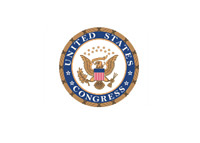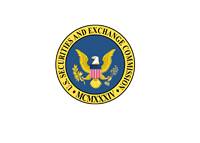Cuomo: Bernanke and Paulson Threatened Lewis if He Didn't Complete Merrill Lynch Deal
 Did Henry Paulson and Ben Bernanke threaten to fire Ken Lewis, CEO of Bank of America, if his company didn't follow through with their proposed merger with Merrill Lynch?
Did Henry Paulson and Ben Bernanke threaten to fire Ken Lewis, CEO of Bank of America, if his company didn't follow through with their proposed merger with Merrill Lynch?This is exactly what Andrew Cuomo, New York Attorney General, alleged in a letter that was released earlier today.
Cuomo sent a letter on Thursday to Chris Dodd, Barney Frank, Mary Schapiro and Elizabeth Warren after he "uncovered facts that raise questions about the transparency of the TARP program, as well as about corporate governance and disclosure practices at Bank of America."
Andrew Cuomo was originally investigating the "huge" Q4 bonus payouts at Merrill Lynch, and unearthed some additional facts that has everybody talking today.
Here is what Cuomo had to say in his letter:
-the merger between Merrill Lynch and BAC was negotiated on the weekend of September 13-14
-Merrill Lynch desperately needed to find a buyer, as they were not likely to last another week on their own
-in mid-December, the CFO of Bank of America advised Ken Lewis (CEO of Bank of America) that the financial condition of Merrill Lynch was quickly crumbling.
-Lewis, alarmed at just how much money Merrill Lynch was losing, asked his lawyers if Bank of America could walk away from the deal
-a few days later, Lewis advised Henry Paulson (Treasury Secretary at the time) that the Bank of America was considering walking away from the deal on the grounds that a material adverse event (MAC) had occurred.
-Paulson invited Lewis and the CFO of Bank of America to Washington
-a meeting was then conducted between Paulson, Federal Reserve Chairman Ben Bernanke, Ken Lewis, the CFO of BAC and "other officials".
-at the meeting, Bank of America was asked not to walk away from the deal until there was "further consultation".
-Lewis informed Paulson on December 21st that Bank of America still wanted to exit the deal
-apparently it was at this point that Paulson made his threat to Lewis, saying that the government would remove the board and management of BAC if they tried to walk away from the deal
-Paulson apparently corroborated this account, saying that he told Lewis that the government "could or would" remove the board and management of BAC if they chose to walk away from the deal
-Paulson claimed that the collapse of the deal would cause "systemic risk" and that BAC had no legal right to walk away from the deal
-Lewis backed down after the threat was made, and decided to follow through with the deal
-Paulson claims that he made the threat at the request of Fed Chairman Bernanke
-Lewis later testified that Paulson and Bernanke both asked him not to disclose the rapidly escalating losses at Merrill Lynch. In addition, they also asked him not to publicly disclose the fact that he had been prepared to walk away from the deal, or the fact that he had been persuaded by the government to change his mind
-Lewis said that the words spoken to him were "We do not want a public disclosure."
-Bank of America apparently tried to time the disclosure of Merrill Lynch losses with news of its January earnings and receipt of additional TARP funds
-Cuomo reveals that the SEC was kept in the dark throughout this entire process
-Lewis admitted that the decision to continue with the merger of Merrill Lynch "hurt any shareholder" with a short-term holding in the company
The main points that I take out of this letter are:
1. Lewis wanted to walk away from this deal after seeing the mounting losses at Merrill Lynch.
2. Bernanke and Paulson threatened that they would replace the management and board of BAC if they tried this.
3. Lewis eventually backed down and the merger went through, to the detriment of BAC shareholders.
Bank of America's annual shareholder meeting is on April 29th, and many believe that Ken Lewis won't have a job after this meeting.
Many investors are pissed because it appears as though Lewis followed through with the Merrill Lynch deal in an effort to protect his own job.
Some are claiming that Lewis and the board of BAC "violated their legal duties to shareholders in order to protect their own employment interests".
It's interesting to note that BAC's directors stressed in a December 22nd meeting that they weren't coerced by the government to follow through with the deal.
This should be a very interesting BAC shareholders meeting next week.
Source: Andrew Cuomo Letter
Filed under: Stock Market Scandals



